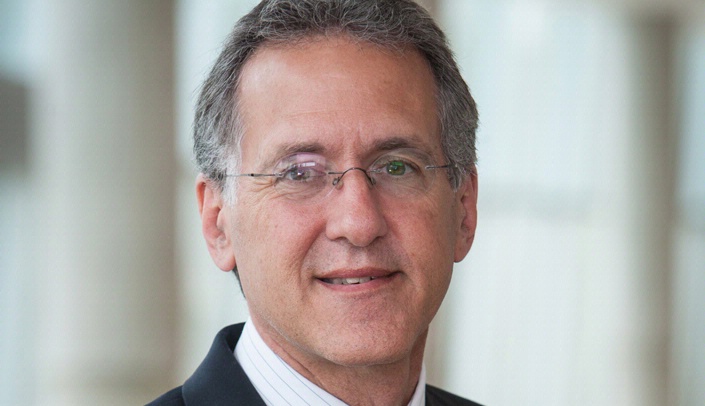As the medical center transitioned to telehealth in response to the ongoing COVID-19 pandemic, the Munroe-Meyer Institute found itself uniquely prepared to provide safe and secure telehealth services — because some departments already have been doing so for some time.
“We started using virtual connectiveness, not so much to deliver care to patients directly, but to supervise post-doctoral fellows and interns or other people in rural areas,” said Keith Allen, Ph.D., director of the MMI Department of Psychology. “We needed to provide supervision so they could work in rural areas and complete their programs, and we’ve been doing that for at least a decade.”
See more about MMI service provision during COVID-19.
Dr. Allen’s providers can do initial diagnostic evaluations for behavioral health services, provide various forms of follow-up care and virtually treat problems such as anxiety, depression, phobia and tantrums.
Rachel Valleley, Ph.D., associate director of clinical services in the psychology department, said MMI began researching telehealth services years ago as part of its drive to reach across the entire state.
“The technology back in the day was expensive, but now we can use Zoom,” she said. “For example, I was able to easily navigate Zoom and provide care with all of the patients I had scheduled on March 18.”
The current situation has required some out-of-the-box thinking, Dr. Valleley said, but MMI is keeping pace.
“We’re rallying the troops,” she said. “The goal is to keep the public safe but not interrupt our treatment services if possible.”
When he arrived in 2017, Omar Rahman, M.D., director of the MMI Department of Genetics, began working to build an infrastructure in outreach clinics to provide genetic counseling in areas throughout the state. Through an effort supported by the Friedland Fund, telegenetics now is available in Scottsbluff, North Platte, Gordon, Kearney and Norfolk, and the department is looking into other locations throughout the state.
“With the recent COVID 19 impact, it was clear that what we’ve been doing for three years is really good preparation for this,” Dr. Rahman said. “We just took the mindset . . . what do we need to do to continue to provide the care? We can’t just grind to a halt. These patients still need to see us.”
Genetics began equipping its providers with home docking stations in 2018.
“They began working off site, and it worked well,” he said.
The department operationalized all telehealth visits at MMI’s Diagnostic Clinic, with a few exceptions, and is working with Children’s Hospital and Medical Center to shift genetic counseling to telemedicine. MMI also is equipping Methodist Hospital, the Fred & Pamela Buffett Cancer Center, the Olson Center for Women’s Health and Boys Town.
“So there are a lot of things that have happened in the last seven days,” Dr. Rahman said in late March. “But our expertise over the past three years gave us the comfort and knowledge to provide that service.”
There can be complications, Dr. Allen pointed out. Some families are uncomfortable with telehealth; some lack the technology at home to use it.
Still, telehealth has evolved over the years, Dr. Allen said, and people nowadays are more used to seeing themselves on a screen and attending virtual meetings.
“The software used is now much better in terms of platform usability and reliability,” he said. “Technology has improved.
“As a provider, I like it because it just increases options. And now is a perfect time — during a time of crisis, a pandemic, where you have social isolation — to show how effective and helpful it can be.”
